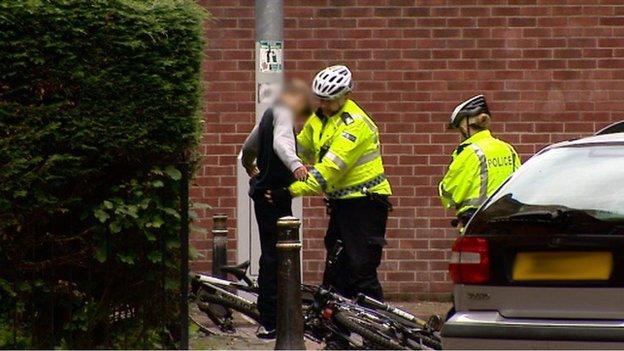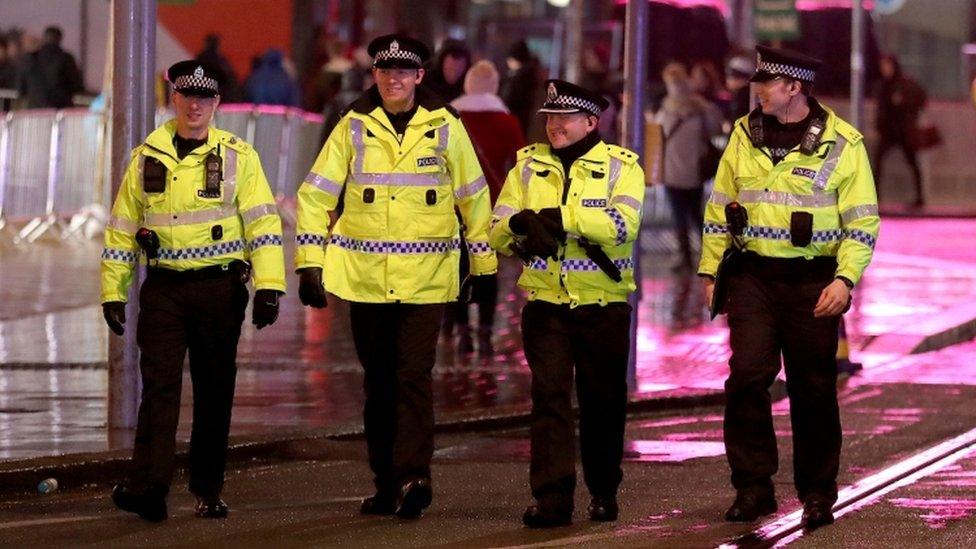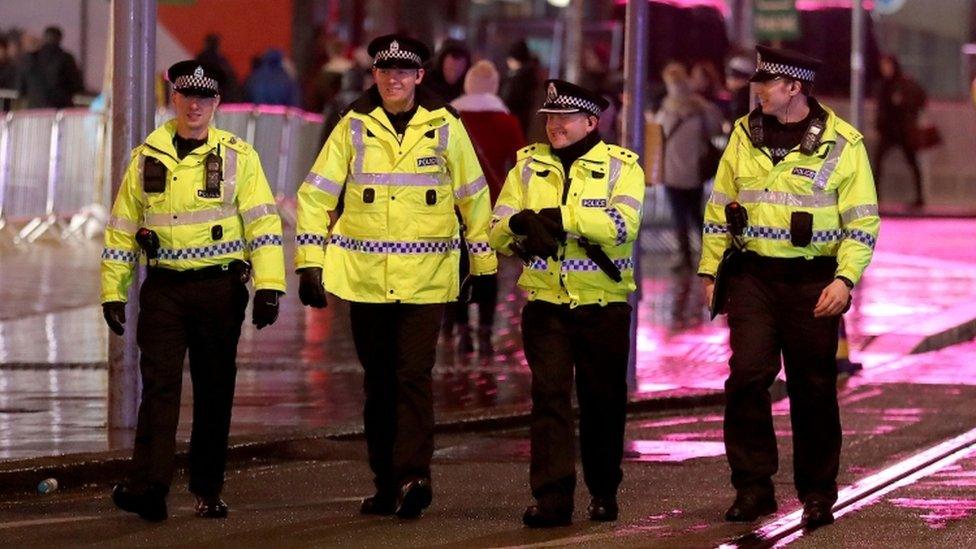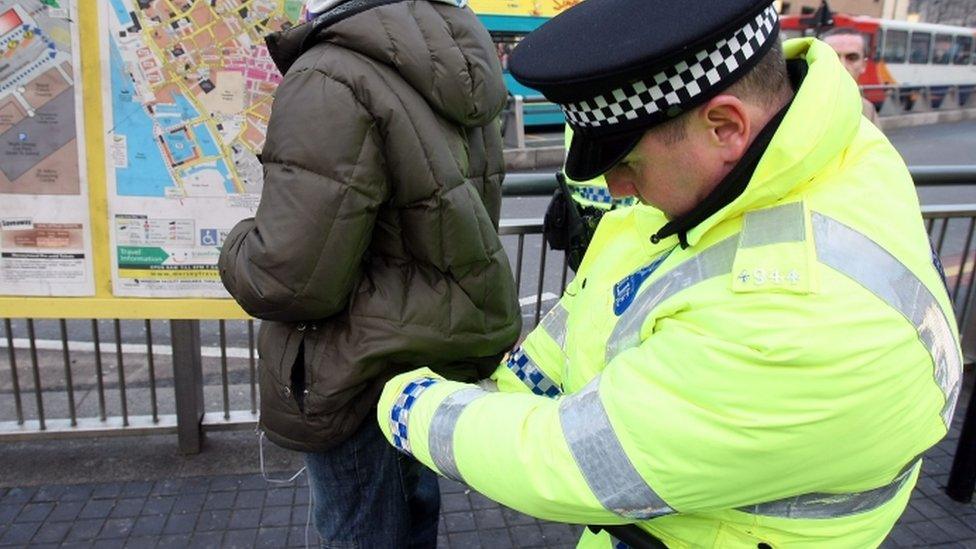Praise for Police Scotland stop and search changes
- Published

Inspectors found that almost all searches it audited were made using legislative powers
Police Scotland has made "substantial improvements" over stop and search, inspectors have said.
HM Inspectorate of Constabulary for Scotland said the force had completed all recommendations it had made on the issue in a report two years ago.
Police officers are allowed to search people for items such as drugs, stolen goods and weapons.
But there has been controversy over "consensual searches", where people are searched without any legal basis.
In its latest report, the inspectorate found almost all searches it audited were made using legislative powers.
In January, new rules were published by the Scottish government which will mean officers will only be able to stop and search people when they have "reasonable grounds" to do so.
Policing tactic
If approved by parliament, the code will end consensual searches from May.
Inspectors found that all 23 recommendations for Police Scotland and the Scottish Police Authority, made in their initial report in March 2015, had now been completed.
HM Chief Inspector of Constabulary Derek Penman said: "In our phase 1 report we recommended a move towards legislative stop and search along with improvements in recording, training, supervision and audit which would give communities across Scotland more confidence in the use of this important operational policing tactic.
"Since our phase 1 report was published, Police Scotland has delivered substantial improvements in the way it conducts, records and monitors all of its stop and search activity."

Police officers are allowed to search people for items such as drugs, stolen goods and weapons
The review found the number of recorded stop and searches had "decreased significantly", with 21,533 carried out between April and September 2016 - a 67% reduction compared with the same period in 2015.
There were no non-statutory searches recorded of children under 12 between 1 June 2015 and 30 September 2016 and only 16 statutory searches.
Other key findings include:
Majority of stop and searches now using legislative powers (96%)
Seizures recorded separately providing more accurate information on stop and searches
Greater transparency through publication of stop and search data on the Police Scotland website
Mr Penman added: "Strong working relationships have been developed with key organisations representing children and young people and I welcome that the views and opinions of young people have helped shape Police Scotland's policy and procedure around stop and search.
"I also welcome the fact that Police Scotland and the SPA [Scottish Police Authority] have commissioned research and worked with academics to identify good practice and inform the use of stop and search in a local context."
HM Inspectorate of Constabulary said it now had "confidence in the accuracy and integrity" of Police Scotland's stop and search data.
Responding to the report, Ch Supt Barry McEwan, head of safer communities at Police Scotland, said: "Police Scotland recognises that stopping and searching members of the public is a significant intrusion into their personal liberty and privacy and we are committed to ensuring that all stop and search activity is carried out in a lawful, proportionate, justifiable and accountable manner.
"Stop and search is intelligence-led and a valuable policing tactic which contributes to the prevention, investigation and detection of crime while at the same time keeping people safe and improving community well-being."
- Published11 January 2017

- Published19 January 2016

- Published3 September 2015

- Published4 February 2015
